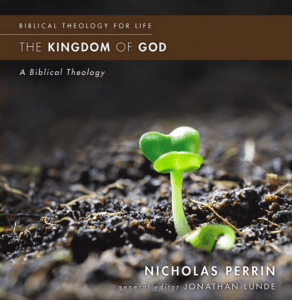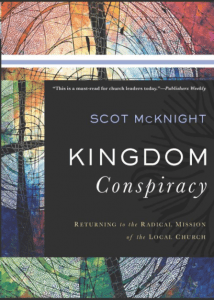 How is the Christian to engage society, the so-called “public” sector, or politics? With the awakening of evangelicals to political activism in the Reagan era, which trailed the more progressive activists of the 60s generation, which trailed the political activism of American mainline liberals, Willard’s answer may seem a bit passé, quaint, or even backward. But is it? Here is his essential proposal: “God’s ‘divine conspiracy’ is to overcome the human kingdoms of this world with love, justice, and truth” and God’s conspiracy “includes the whole world and all of human society” (2, in D. Willard, G. Black, Jr., Divine Conspiracy Continued).
How is the Christian to engage society, the so-called “public” sector, or politics? With the awakening of evangelicals to political activism in the Reagan era, which trailed the more progressive activists of the 60s generation, which trailed the political activism of American mainline liberals, Willard’s answer may seem a bit passé, quaint, or even backward. But is it? Here is his essential proposal: “God’s ‘divine conspiracy’ is to overcome the human kingdoms of this world with love, justice, and truth” and God’s conspiracy “includes the whole world and all of human society” (2, in D. Willard, G. Black, Jr., Divine Conspiracy Continued).
To remind you if you were not with us Monday, Gary Black coauthored this book with Dallas in Dallas’ last season of life. Dallas worked in an office behind his home, and the picture in this post is of Dallas’ library.
But how are we to “participate” in this divine conspiracy? Willard-Black say we “must responsibly and explicitly address the public issues, proposals, and process of society within their spheres of influence” (2), and right there we need to pause. Willard-Black are proposing a classic Kuyperian approach of the Christians in a pluralist society. (On Kuyper, see James Bratt, Abraham Kuyper: Modern Calvinist, Christian Democrat, which I have reviews on this blog here.)
What drives the vision? “Spokespersons for Christ are under the overarching imperative to love God and to love their neighbors as themselves” (2). So this is not a “religious conspiracy” [not sure what that might mean] but “God’s conspiracy” (3). This conspiracy, driven by love for both God and others, then, is not aggressive but peaceful and patient and kind.
At the heart of Willard-Black is a theory of the kingdom that avoids the common temptation to make kingdom entirely in the future, which I don’t hear about so much anymore. Instead, this kingdom begins when Jesus announced it at the Great Commission even prior to his ascension. This focuses a bit too much on the “ruling” of the kingdom and not enough on the “king” so I’d say the kingdom “begins” when the king arrives on the scene — from incarnation on, in fact. This is why Jesus can say the kingdom is already at work (Matthew 12:28).
But this means the kingdom “is a current, progressing, maturing reality” (5)[no sign here of postmillennialism, which is the tell-tale sign of progressivist kingdom theories]. Jesus rules over everyone and everything already. Jesus’ kingdom vision is a “holistic vision” (5).
Willard-Black contend there is a “lack of awareness, interest, and critical thinking” on how kingdom works into society through the influence theory. Maybe they are thinking of low church evangelicalism but they cannot be thinking of the Reformed Christians — for the Kuyperian theory is deeply embedded in all their thinking, it was all over Francis Schaeffer and the Moral Majority, and it is all over Tim Keller today. But there are pockets who do not think about this kind of topic at all, and when they do it is entirely pragmatics — get involved and vote and get active.
They see two golden examples: the behavior of the Amish in Nickel Mines and the radical vision of microfinancing among the poor of this world. We are to be “ambassadors of good” (9).
What I see here is a virtual equation of kingdom with common good or the goodness of God in the public or political sector. Kingdom therefore gets very close to God’s common grace that is becomes more and more present through the influence of Christians in various sectors of life. I counter this theory of kingdom in my Kingdom Conspiracy, though I don’t disagree one bit, at all, in any way with their summons for Christians to be good citizens, to be good people, and to work for the good of others in this world. [And Gary has seen my Kingdom Conspiracy project, so he now knows where I stand on these issues.]















